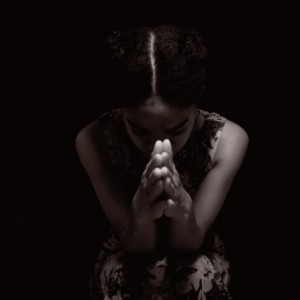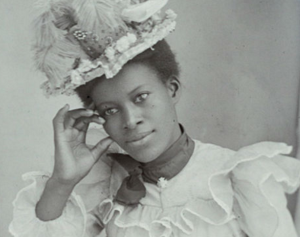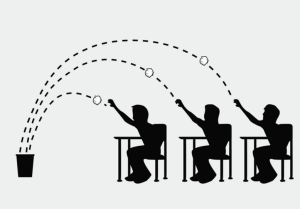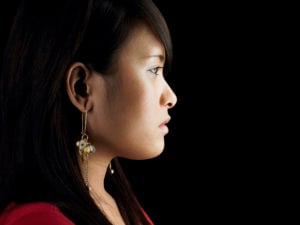
Source: Getty Images
Not a day goes by that someone doesn’t call me a “radical feminist” and accuse me of trying to destroy religion and traditional values.
People on the Internet are both my biggest critics and my most enthusiastic supporters. But because of them, I have been forced to truly question my own beliefs on the compatibility of feminism and religion.
I think that they can coexist. Here’s why.
The thing about feminism is that it’s about empowering women — and that means all women – regardless of differences. And while I may personally find most religions inherently misogynist and oppressive, that does not give me the right to deter any other woman from finding spiritual nourishment in a religious community.
If feminism becomes synonymous with anti-religion, we risk alienating the women we seek to uplift and support.
If anything, feminism and religion are deeply connected because our views on gender are very much based in religious doctrines. And we cannot fight for equal rights by disenfranchising those who reconcile their religious beliefs with feminism.
Because while modern religions are all very male-centric, they simply mimic the world that we live in.
That is, religion isn’t the problem.
Our world is male-centric. And our job as feminists is to make spaces for women to be the person they choose to be and to live their lives the way they best see fit.
Women of faith should not sacrifice their spiritual beliefs because organized religion is inherently misogynistic, just as we do not abandon our parents who might believe in traditional gender roles.
Feminism should give those women a platform to speak up. It shouldn’t shun women because some feminists don’t find religious faith compatible with their beliefs.
In fact, feminism has an important role to play in religion in order to help remove any ingrained bias and discrimination.
Given the nature of religions and their followers, progressive change will not come by external forces. Progressive change comes when the people within demand it. Not when they abandon it.
If we truly want religions to become more accepting and forward-thinking, we have to accept the women and men who are trying to make progressive change happen from within their religious and spiritual organizations.
Being religious and feminist means that these women and men have already challenged the authority of fundamental tenets of their faith. And that’s an amazing thing.
I am a secular feminist. I find no peace of mind or soul-nourishment in religion or spirituality. I derive all my love and passion from my fascination with science and nature.
Yet I know women who find their strength to be compassionate, understanding, and egalitarian from the gospels of Jesus Christ or from Wiccan goddesses.
And who are we to decide which is an acceptable source of feminist thinking and which isn’t?
I propose that as a feminist community, we work harder to be more inclusive of women of faith. Here are six places to start.
1. Do not expect feminists of faith to defend the acts committed by others who follow her religion.
It is very tempting to start a debate, to question a particular religion’s role in condoning bigotry. But we must remember that a woman who has chosen to be a feminist has (likely) already asked herself those questions.
Instead of judging her for adhering to her faith, try praising her for being a progressive voice for her religion.
2. Do not dismiss her lived experiences.
Listen to her.
Our lives may be different, but our struggles are the same. Disagreeing with her beliefs should not interfere with our ability to empathize.
3. The ultimate goal is the same.
Understand that while their route to equality might look different than yours, all feminists want to be treated with dignity and have full autonomy.
We fight for those goals within secular and religious organizations.
4. Ask her how religion or spirituality helps her be a better feminist.
Dialogue gives us a way to find common ground.
Through dialogue, I learned from a friend that she did not learn her feminism from bell hooks or Gloria Steinem, but from reading the story of Junia in the New Testament, who is described as “outstanding among the apostles.”
5. Try learning from religion or spirituality.
Don’t mock it.
Believers seek spiritual nourishment.
If you are secular, try finding serenity with a ritual. You can even make one up for yourself!
6. Remember that feminism and religion share a common objective: inclusion and connection.
It is important to connect on the things we have in common.
Feminism, religion, and spirituality are all about connecting via a common belief and the need for a community.
Secular feminists and feminist of faith might find their inspiration from different sources, but we are all inspired to fight for the same rights.
[do_widget id=”text-101″]
Patricia Valoy is a Contributing Writer for Everyday Feminism. She is a Civil Engineer, feminist blogger, and STEM activist living in New York City. She writes about feminist and STEM issues from the perspective of a Latina and a woman in engineering. You can read more of her writings on her blog Womanisms, or follow her on Twitter @besito86. Read her articles here and book her for speaking engagements here.
Search our 3000+ articles!
Read our articles about:
Our online racial justice training
Used by hundreds of universities, non-profits, and businesses.
Click to learn more




















